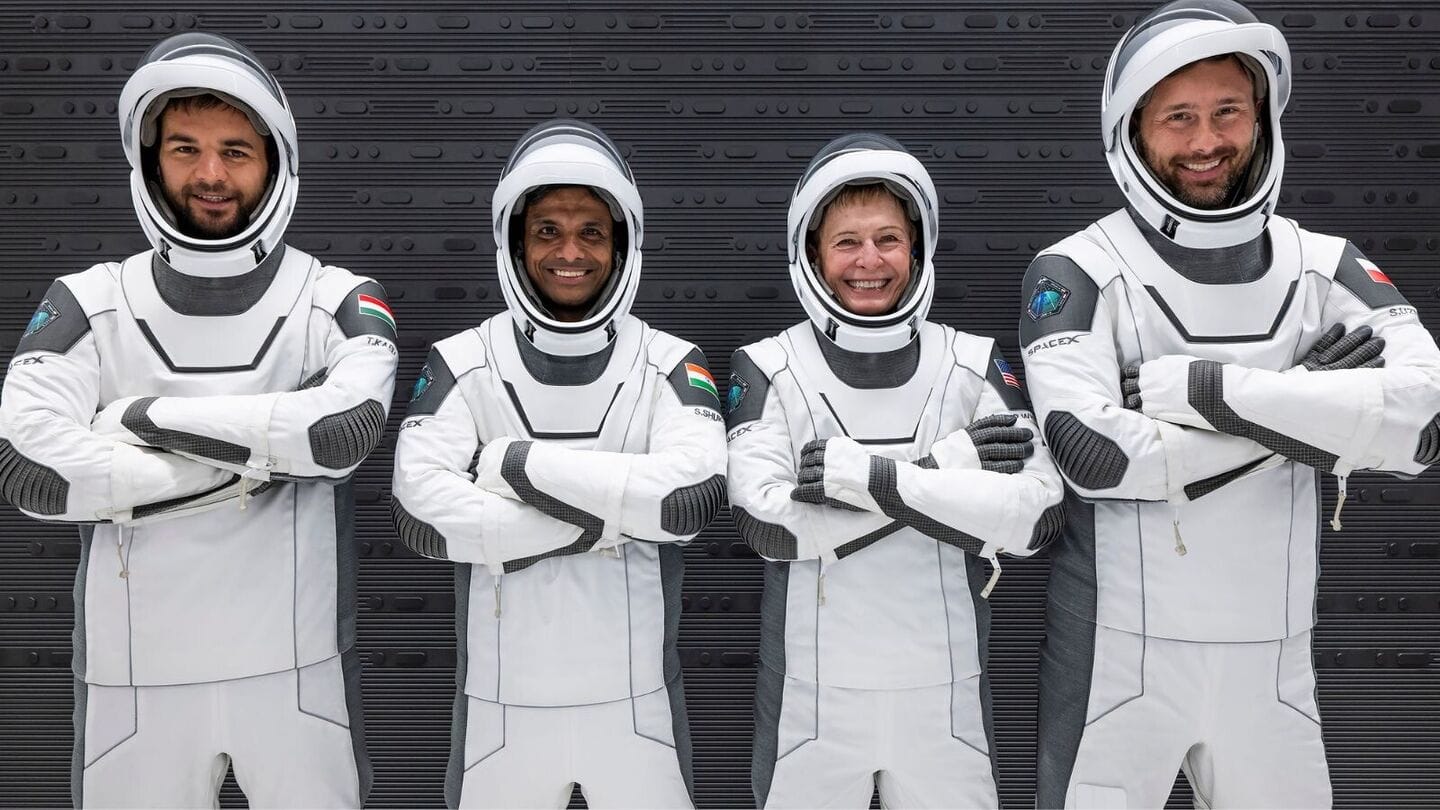
Shubhanshu Shukla's ISS mission postponed: Check new launch date
What's the story
The launch of the Axiom-4 mission, which will take Indian astronaut Group Captain Shubhanshu Shukla to the International Space Station (ISS), has been delayed. The Indian Space Research Organisation (ISRO) announced that the launch will now take place on June 11 at 5:30pm.The delay is caused by unfavorable weather conditions that disrupted today's planned schedule.
Mission details
Mission to carry first government-sponsored spaceflight crew in 40 years
The Axiom-4 mission is a historic partnership between India, Poland, and Hungary. It will be their first government-sponsored spaceflight in over 40 years. The Ax-4 crew includes Commander Peggy Whitson from the US, Shukla from India, Tigor Kapu from Hungary, and Slawosz Uznanski-Wisniewski from Poland. They will launch aboard SpaceX's Falcon-9 rocket from NASA's Kennedy Space Center (KSC) in Florida.
Space mission
Shukla will conduct food, nutrition experiments at ISS
Shukla will be the second Indian to go to space, after Rakesh Sharma's Soviet mission in 1984. He will conduct food and nutrition-related experiments during his 14-day stay at the ISS. The research activities are part of a collaboration between ISRO, the Department of Biotechnology (DBT), and NASA. These studies aim to develop space nutrition systems for long-duration missions in the future.
International research
Mission with highest number of research activities aboard ISS
The Ax-4 mission will also feature the most number of research and science-focused activities ever conducted on an Axiom mission aboard the ISS. Nearly 60 scientific studies from 31 countries, including the US, India, Poland, Hungary, Saudi Arabia, Brazil, and Nigeria will be represented. This highlights the global importance of this mission in advancing microgravity research in low-Earth orbit (LEO).